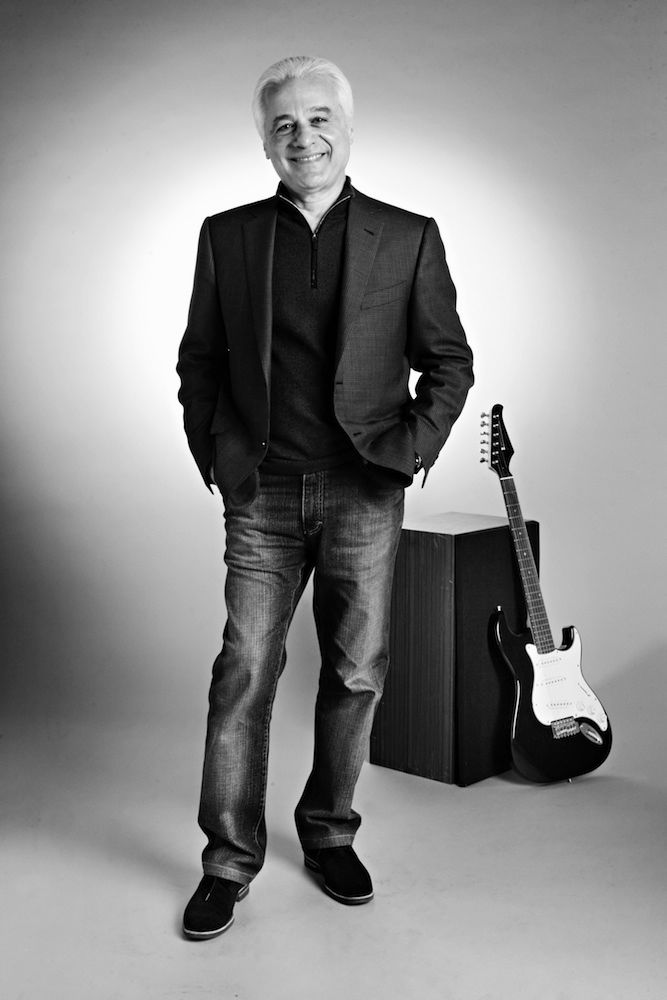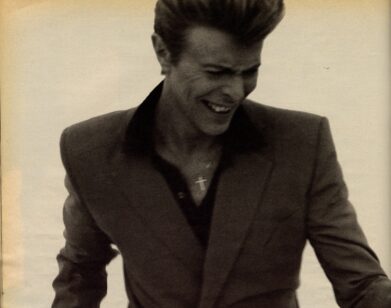Three Decades of Rock in Rio

In June 1990, on a sunny afternoon in Rio de Janeiro, Roberto Medina—the founder of Rock in Rio, the world’s biggest music festival—was kidnapped by 10 armed men, who stuffed him into a car held him captive at gunpoint for three weeks. Medina, a very successful Brazilian advertising executive who became an impassioned music world kingpin, had created the festival a few years earlier to unite a city torn apart by a dictatorship and soaring crime, but as the armed abduction proved, there was still an imminent threat in the streets of Rio. (Though it couldn’t have helped that Media made enemies by propping up the campaign of newly installed Brazilian president, Fernando Collor de Mello.)
So, after his family paid the $5 million bail, there was only one way to respond: give rock-‘n’-roll to Rio once again. The 1991 Rock in Rio was bigger than the first, and led to decades of festivals in Rio—as well as Lisbon and Madrid in certain years—that look like direct antecedents of, say, Coachella and Bonnaroo. In 2015, we’ll see exactly how Medina’s eardrum-smashing empire stacks up next to those in the states: he’s bringing Rock in Rio to Las Vegas in a partnership with MGM Resorts International, Cirque du Soleil, and Ron Burkle. To stand out in a city not lacking in full-blown spectacles, Medina and his new crew will build a City of Rock, a permanent venue with a capacity of 80,000, right on the Strip.
We spoke with Medina (on the phone, through a translator) just days before heading out to Lisbon for this year’s festival, where The Rolling Stones, Justin Timberlake, Arcade Fire, Queens of the Stone Age, and many others will perform.
NATE FREEMAN: So, how did this festival come together when you started it years ago? What did you want to achieve?
ROBERTO MEDINA: In 1984, we had been living in a military dictatorship, and we were turning it into a democracy. We thought we could gather everyone together for a musical event—it was a very poor country, and we made the tickets cost only $8. In the US, those tickets would cost $80! We had to build everything. There was no lights, no stages, nothing at all. 50,000 was the biggest audience in Brazil up to that point, and we ended up topping that—we had a million and a half people.
FREEMAN: I know that you were trying to lift a country’s spirits after a dictatorship—how effective has the festival been in doing so? It was a very uneasy time for Rio, and for the country. I can’t help but think that your kidnapping was a sign of trouble… Have things changed since then?
MEDINA: Rock in Rio was a very important element for the Brazilian youth, and for the city in general. We’ve invested $23 million in social projects to help the Rio slums. And the economical impact was very important for the city. Rock in Rio is more important for Rio than the World Cup. It generates more revenue. It brings 13,000 jobs.
The kidnapping is a whole separate issue. I was organizing the second edition of Rock in Rio while the city was going through a very difficult time. My family managed to pay the ransom, and when I got out, I promoted a new cause called React Rio. As a result, 4,000 people dressed in white went into the streets and moved the federal government enough that there was a noticeable drop in kidnappings. Today, there are hardly any kidnappings at all.
FREEMAN: I want to know what you think of rock festivals in the United States in general. In the past 15 years the rock festival has become this phenomenon, and now something that was a niche culture is now one of the most lucrative parts of the music business. Rock in Rio came before all of that. Do you think that you were a pioneer?
MEDINA: It’s a totally different story, as they are completely different products. As with the Rock in Rio festivals held in every other city, when we move to Las Vegas, it will rely heavily on sponsorship, which makes it very different from the American festivals. In America, the brands are hidden away. The funding comes from ticket prices, but we continue to rely on brand support. I will give you an example. Coca-Cola Brasil is the third biggest corporation in the world, so I went to a meeting with the president, and he gave us $35 million, because he knew he would make money. I have a young, energetic brand and I invited him to be a part of that. It’s a win-win. In the American market, we started the campaign over a year before Rock in Rio Las Vegas. In September, we’re closing two blocks in Times Square to promote the event. In October, 20 American journalists will come to Brazil, where we’re building a new City of Rock for the Summer Olympics in 2016.
FREEMAN: Well, the marketing is important, of course, but I’m also interested in your own personal tastes, your own approach to rock music today. How involved are you in choosing the bands that play each year? And is there a particular band this year that you’re excited to see?
MEDINA: I’m involved, but I don’t follow the music scene too closely. I already have studies that I’m running, and with that research, I identify the most-wanted bands. Though I do have some say. James Taylor, I brought him on. That was a personal choice. Guns N’ Roses. Also, Bruce Springsteen, that was a personal choice. This year, I don’t want to say I have a favorite band, because that would be unfair. [pauses] Well, we do have the Rolling Stones this year… [laughs]
FREEMAN: After 30 years, you’re finally expanding to the United States. You could have brought the festival anywhere. Why did you choose Vegas? There are already a bunch of big festivals there. How does Rock in Rio fit into the busy schedule there?
MEDINA: Rock in Rio is so different. It’s very different from Electric Daisy, it’s very different from Coachella—it’s different than anything that came before it in the States. It’s a very unique brand. So, it will fit in, definitely.
FREEMAN: Yeah, there’s no doubt it’s different in terms of the look, the approach, and the bands you guys get. I still can’t believe I’m seeing the Rolling Stones in a few days.
MEDINA: Me too!
FREEMAN: So, what’s next for the festival, and for you, Roberto? You’re about to conquer the United States, you’ve already done Europe, obviously you’ve got South America. Where are you going next?
MEDINA: I’m in conversation with people in the Middle East. Where in the Middle East? I’ll show you the plans soon.
ROCK IN RIO CONTINUES THIS WEEKEND IN LISBON. FOR MORE ON THE FESTIVAL, PLEASE VISIT ITS WEBSITE.






